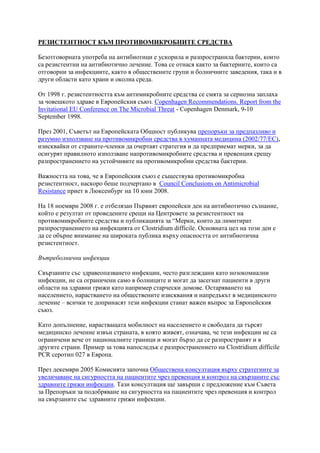Analysis: 311 Deaths In England Linked To Extreme Heat

Table of Contents
The Study's Methodology and Findings
The data for this analysis comes from the Office for National Statistics (ONS) and Public Health England (PHE), now part of the UK Health Security Agency (UKHSA). The methodology employed involved sophisticated statistical modelling and correlation studies to establish a direct link between the recorded excess deaths and the extreme heat experienced during the summer months. This wasn't simply a correlation; the analysis carefully considered other factors to isolate the impact of heat.
Beyond the stark figure of 311 deaths directly attributed to extreme heat, the study revealed several crucial findings:
- Age Groups: The elderly population (over 75 years old) suffered the highest mortality rate, consistent with existing research on heat vulnerability. Infants and young children were also disproportionately affected.
- Geographical Distribution: Excess deaths were particularly high in urban areas, likely due to the urban heat island effect, where cities retain more heat than surrounding rural areas.
- Underlying Health Conditions: Pre-existing cardiovascular and respiratory conditions significantly increased the risk of heat-related mortality. Those with chronic illnesses were far more susceptible to the effects of extreme heat.
- Other Factors: The analysis also considered factors such as pre-existing health conditions, social isolation, and access to healthcare in determining the impact of the heatwave.
Vulnerable Populations and Risk Factors
The analysis clearly identifies specific populations at heightened risk of heat-related mortality:
- Elderly Individuals: Older adults, especially those living alone or with limited social support, are particularly vulnerable due to age-related physiological changes and potential medication interactions.
- Individuals with Pre-existing Conditions: People with cardiovascular disease, respiratory illnesses (such as asthma and COPD), and chronic kidney disease are at significantly increased risk. Heat exacerbates these conditions, leading to severe complications.
- Socially Isolated Individuals: Those lacking social support networks are more likely to experience heatstroke or other heat-related illnesses due to delayed access to help.
- Those in Poor Housing: Individuals living in poorly insulated housing, without access to adequate cooling systems, face a greater risk of overheating and subsequent health complications. This disparity highlights the intersection of socioeconomic factors and heat vulnerability.
Older adults over 75 accounted for the largest proportion of deaths. Those living in poorly insulated housing experienced higher mortality rates.
Implications for Public Health and Heatwave Preparedness
The findings necessitate a significant overhaul of heatwave preparedness strategies:
- Improved Warning Systems: The UK needs more sophisticated and timely heatwave warning systems, reaching vulnerable populations effectively. This includes clear and accessible information disseminated through multiple channels.
- Public Awareness Campaigns: Targeted public awareness campaigns are crucial to educate the public about heat-related risks, preventive measures, and seeking help when needed.
- Government and Local Authority Roles: Government and local authorities must invest in infrastructure improvements, such as urban greening and improved building insulation, to mitigate the urban heat island effect. Increased funding for public health initiatives is vital.
- Protecting Vulnerable Populations: This requires establishing comprehensive heatwave health plans, community support networks, and readily available resources for vulnerable individuals. This might include home visits to check on the elderly or providing cooling centres.
Investment in infrastructure to improve urban cooling is crucial. Increased funding for public health initiatives is needed. Community outreach programs can help vulnerable individuals cope with extreme heat.
Long-Term Strategies for Climate Change Adaptation
The analysis of 311 deaths directly linked to extreme heat underscores the urgent need for long-term climate change adaptation and mitigation strategies:
- Climate Change Connection: The increasing frequency and intensity of heatwaves are directly linked to climate change. Addressing climate change is paramount to preventing future tragedies.
- Mitigation and Adaptation: Long-term strategies must focus on both mitigating climate change through reducing carbon emissions and adapting to its unavoidable impacts.
- Reducing Carbon Emissions: Investing in renewable energy sources, improving energy efficiency, and promoting sustainable transportation are crucial for mitigating climate change and reducing the frequency of extreme heat events.
Investing in renewable energy sources is crucial for long-term climate change mitigation. Improving building insulation can help reduce heat-related deaths.
Conclusion: Analysis: 311 Deaths in England Linked to Extreme Heat – A Call to Action
The analysis of 311 deaths directly linked to extreme heat in England highlights the urgent need for improved heatwave preparedness and adaptation strategies. The vulnerability of certain populations, particularly the elderly and those with pre-existing health conditions, underscores the importance of targeted interventions. The long-term implications of climate change necessitate collective action to mitigate its impact and build resilience against future heatwaves. Understanding the devastating impact of extreme heat, as demonstrated by this analysis, necessitates immediate action. Learn more about heatwave safety and how you can help protect vulnerable individuals in your community. Together, we can improve heatwave preparedness and build resilience against the effects of climate change. Let's work towards effective extreme heat mitigation and climate change adaptation strategies to prevent similar tragedies in the future.

Featured Posts
-
 Globalna Ekstremna Zhega Poveche Ot Polovinata Svyat E Zasegnat Prez 2024 G
May 30, 2025
Globalna Ekstremna Zhega Poveche Ot Polovinata Svyat E Zasegnat Prez 2024 G
May 30, 2025 -
 Air Jordan June 2025 Releases Dates Styles And Where To Buy
May 30, 2025
Air Jordan June 2025 Releases Dates Styles And Where To Buy
May 30, 2025 -
 Is Goran Ivanisevic Coaching Stefanos Tsitsipas The Latest Tennis News
May 30, 2025
Is Goran Ivanisevic Coaching Stefanos Tsitsipas The Latest Tennis News
May 30, 2025 -
 La Orden Ejecutiva De Trump Y Su Impacto En La Industria De La Reventa De Boletos
May 30, 2025
La Orden Ejecutiva De Trump Y Su Impacto En La Industria De La Reventa De Boletos
May 30, 2025 -
 Rapid Growth In The Vaccine Packaging Market Key Drivers And Challenges
May 30, 2025
Rapid Growth In The Vaccine Packaging Market Key Drivers And Challenges
May 30, 2025
